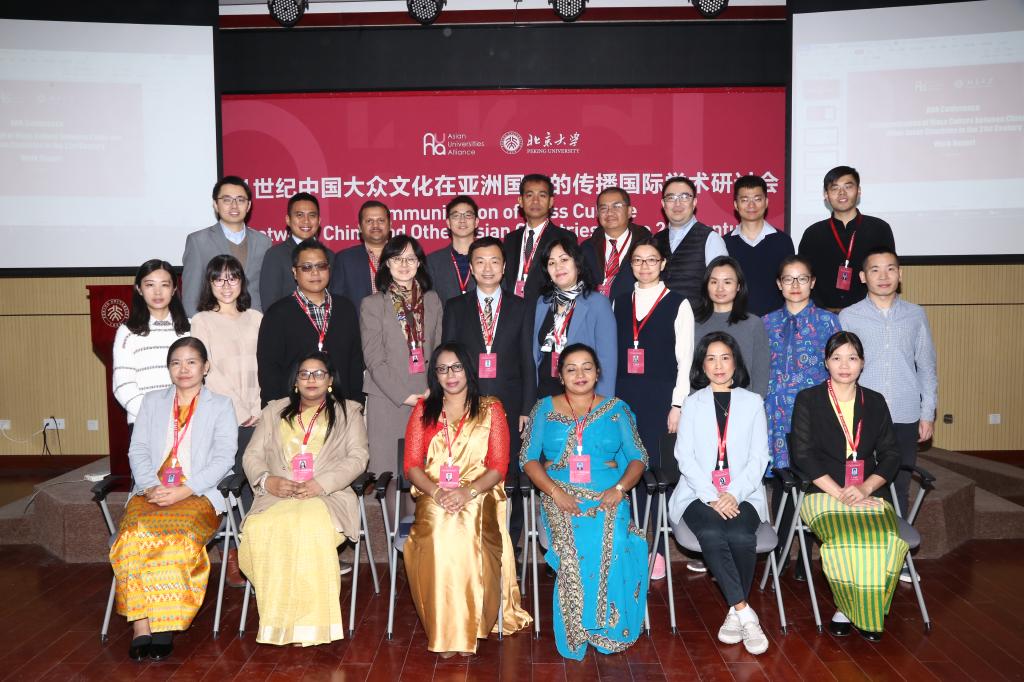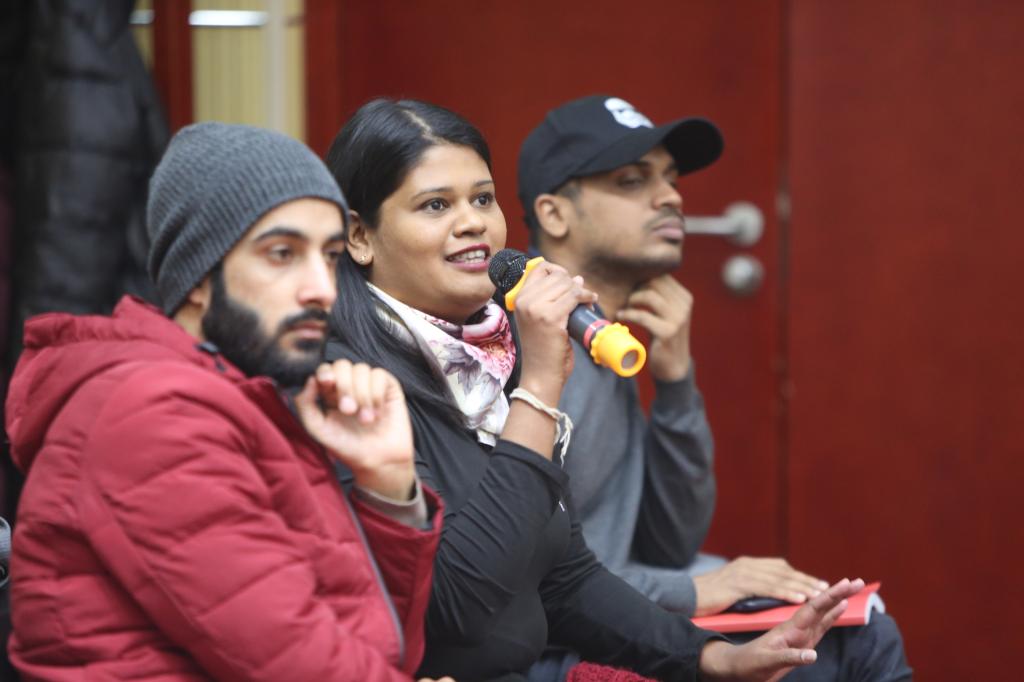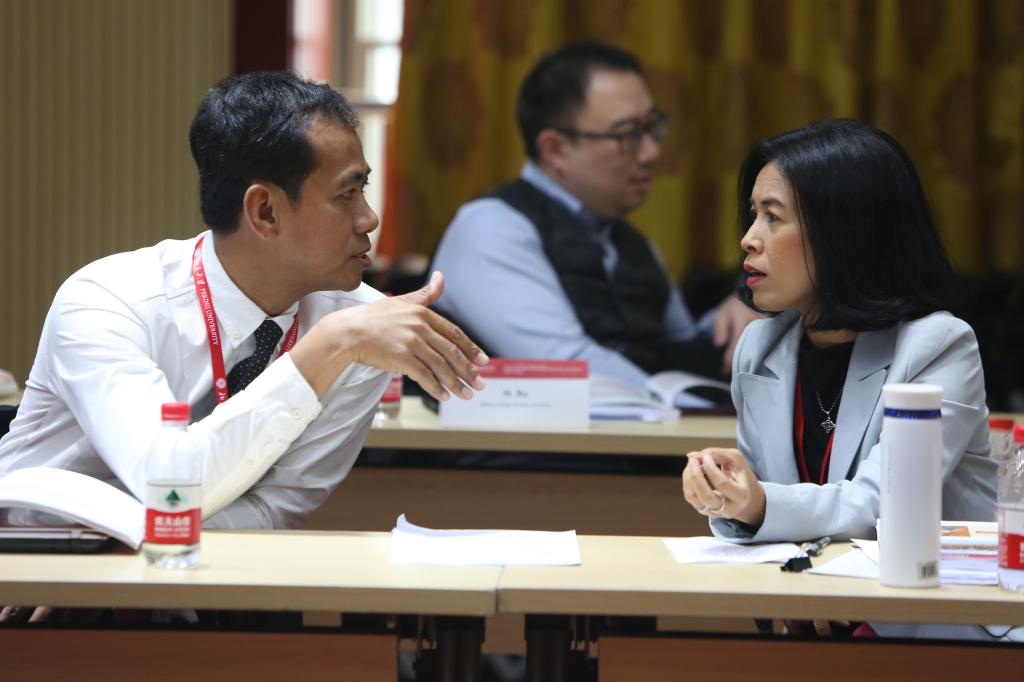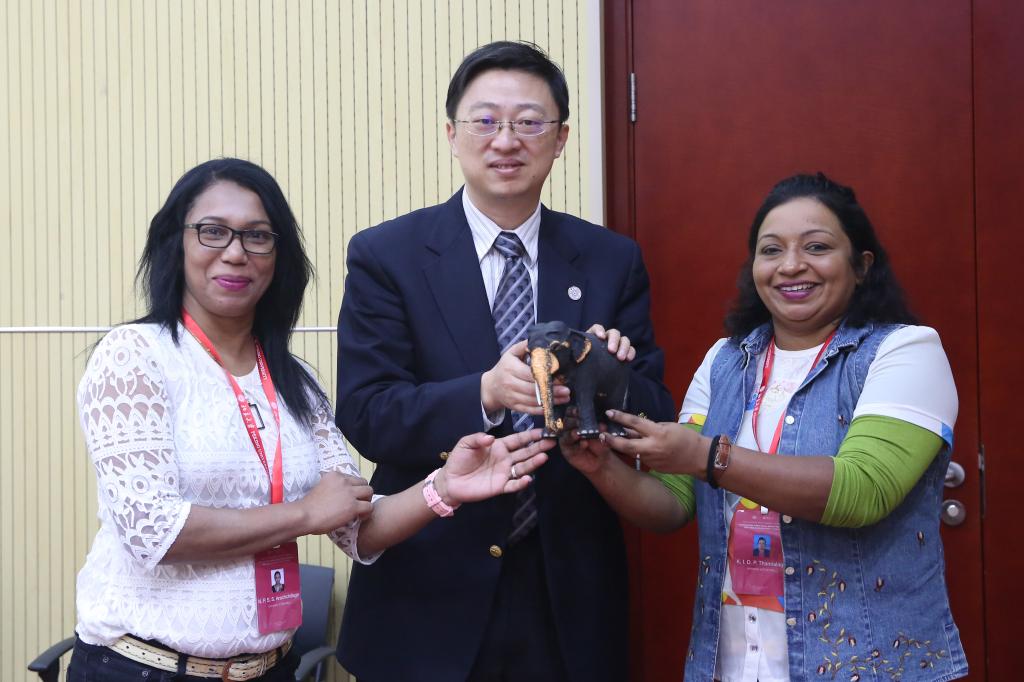The International Conference on the “Communication of Mass Culture between China and Other Asian Countries in the 21st Century”, co-sponsored by the Research Center of Eastern Literature and School of Foreign Languages of Peking University and with the support of AUA, was held at Peking University from 23-24 November 2019. The conference was attended by 21 scholars from nine AUA member universities: Chulalongkorn University, Indian Institute of Technology Bombay, Nazarbayev University, Peking University, Seoul National University, Tsinghua University, Universiti Malaya, University of Colombo and University of Yangon; as well as scholars from five non-AUA universities: Ateneo de Manila University (Philippines), Royal Academy of Cambodia (Cambodia), Beijing Foreign Studies University, Xi’an International Studies University, and Fudan University (China).

Group photo of conference participants at PKU
The conference aimed to explore Asian society and mass culture, the authors and works of Asian mass culture and the image of China in Asian mass culture. A total of twenty papers were selected as the conference articles. According to themes of papers, the organizing committee set up three panel sessions for this conference: Asian Society and Culture, Communication and Media and International Relations and Cultural Exchange.
The opening ceremony of the conference was presided over by Prof. Wu Jiewei, Chairman of the conference and Deputy Dean of the School of Foreign Languages, Peking University. He introduced the preparatory process of the conference, the composition of participants, the theme, and extended his heartfelt welcome to them. He hoped that the conference would promote people’s understanding of the cultural links among Asian countries, promote the links between Chinese and foreign scholars, and strengthen the building of the academic community under the framework of AUA.
Asian Society and Culture
The first panel session on Asian Society and Culture was chaired by Prof. Ranjan K. Panda from the Department of Humanities and Social Sciences, Indian Institute of Technology Bombay. The session, held on the morning of 23 November, saw participants deliver speeches on topics such as comparative study on Myanmar and Chinese festivals, the conception of the universe in China and India, films about Indian women, and Philippine short stories and post-colonial films, demonstrating the cultural ties between Asian countries and the rich personalities of their respective cultures.

A delegate participating in discussion during the conference
Communication and Media
In the afternoon, the second panel session on Communication and Media took place. The session was held in two stages, chaired by Zoon Ahmed Khan, a researcher from the Belt and Road Initiative Institute of Strategic Studies, Tsinghua University, and Prof. Xu Hanyi, from the Department of Asian Studies, Beijing Foreign Studies University. Scholars attending the meeting spoke on the use of social media, Chinese education, the spread of Chinese food culture in Sri Lanka, the international documentary competition of Asian college students, and the spread and influence of Chinese films and TV dramas in Southeast Asia. Vivid pictures and video materials were used to illustrate the important role of mass culture in China’s foreign exchanges.

Two of the delegates during the conference
International Relations and Cultural Exchange
On the morning of 24 November, the panel session of International Relations and Cultural Exchange continued, chaired by Prof. Thida Aung from the Department of International Relations, University of Yangon. The participants delivered their speeches on topics such as China-Kazakhstan cultural ties, public diplomacy and China-Myanmar relations, the Belt and Road Initiative, and the spirit of the Silk Road in the era of globalization, highlighting the friendly exchanges and integration of civilizations between China and Asian countries.
A major feature of this conference was Asian scholars talking freely about Asian civilizations, highlighting the perspective of China and Asia. The participants come from different countries and have diverse academic backgrounds. They commented on the cultural phenomena in ancient, modern and contemporary East Asia, South Asia, Southeast Asia, Central Asia and other Asian regions from the perspectives of traditional culture, popular culture, literature, film, economy and trade, history and society.
In the closing ceremony, Prof. Wu Jiewei said the speeches and exchanges at the conference fully demonstrated participants’ academic wisdom and responsibility as scholars. Asian countries have complex and diverse cultures, values and social backgrounds. Full understanding and communication among countries is an important factor for regional development. Scholars from all over the world have shown positive, objective and profound thinking through relevant studies, which has aroused academic resonance with each other. This has laid a solid foundation for building an academic community of Chinese and Asian cultural studies among Asian scholars in the future. The outcomes of this conference fully demonstrate that we have the ability and responsibility to further promote exchanges and interactions with Asian scholars, build more effective platforms for the formation of the academic community and contribute to the harmonious development of Asia.

AUA Secretary Prof. Zhang Chuanjie (center) with conference delegates